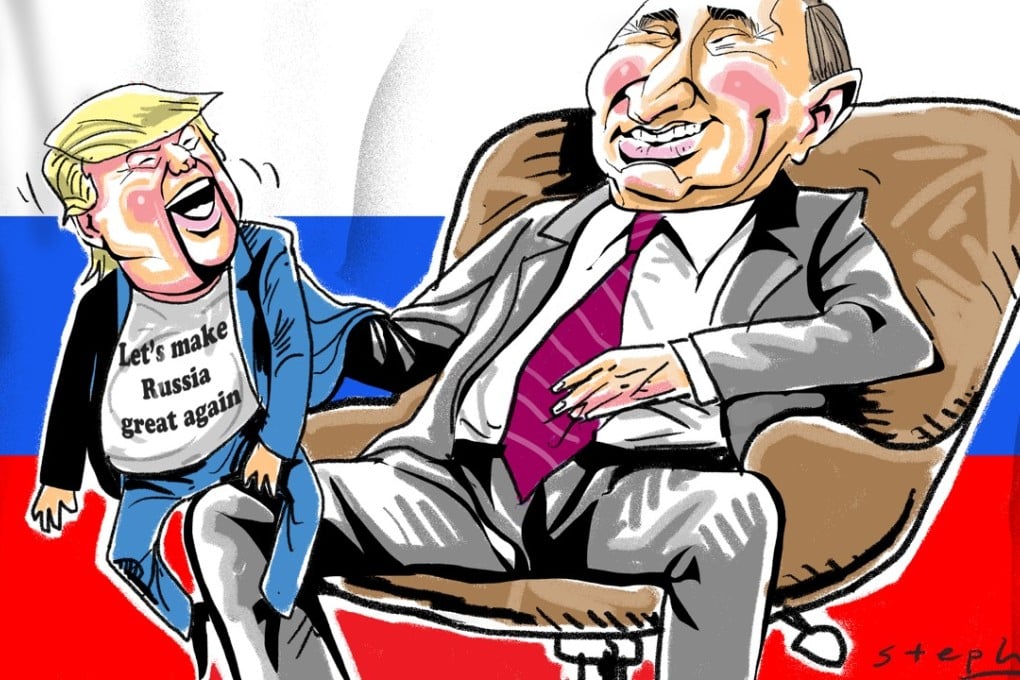Advertisement
Trump dances to Putin’s tune, putting US democracy and the global order in jeopardy
Kevin Rafferty says the US president’s summit with his Russian counterpart shows he’s willing to stake American democracy and global stability on his own deal making. As the global order unravels, the only question is whether other countries, namely China, can form a new one
Reading Time:4 minutes
Why you can trust SCMP

Is President Donald Trump a traitor to the United States, a secret Russian plant, a duped puppet under the spell of Vladimir Putin or a businessman seeking a dishonest billion or so – or most of the above?
It is hard to know after the meeting between Trump and Putin in Helsinki and the press conference where Trump suggested he believed Putin rather than his intelligence agencies about Russian interference in the 2016 US elections.
Trump’s assertions brought outrage from all sides in America, including key Republicans hitherto silent about his efforts to overturn the established world order.
Advertisement
Then, 24 hours after the firestorm, Trump tried to clarify, claiming he should not have said “would”, but meant “wouldn’t”: as in “I don’t see any reason why it wouldn’t be Russia”. He accepted the intelligence community’s conclusion, then claimed, “It could be other people. Lot of people out there”. In the middle of his meandering, the lights went out; “must be the intelligence agencies”, he joked.
Trump is an international wrecking ball against established rules and behaviour regulating world trade, cooperation on global issues and US relations with its allies.
Watch: Donald Trump claims he misspoke about Russia’s alleged election meddling
Advertisement
Select Voice
Select Speed
1.00x